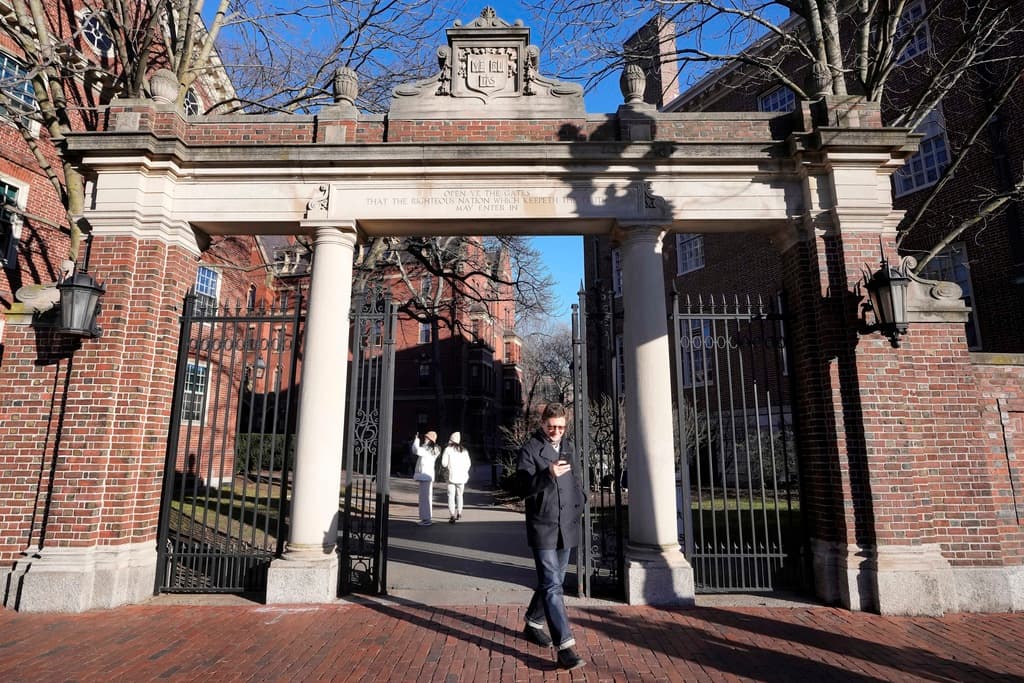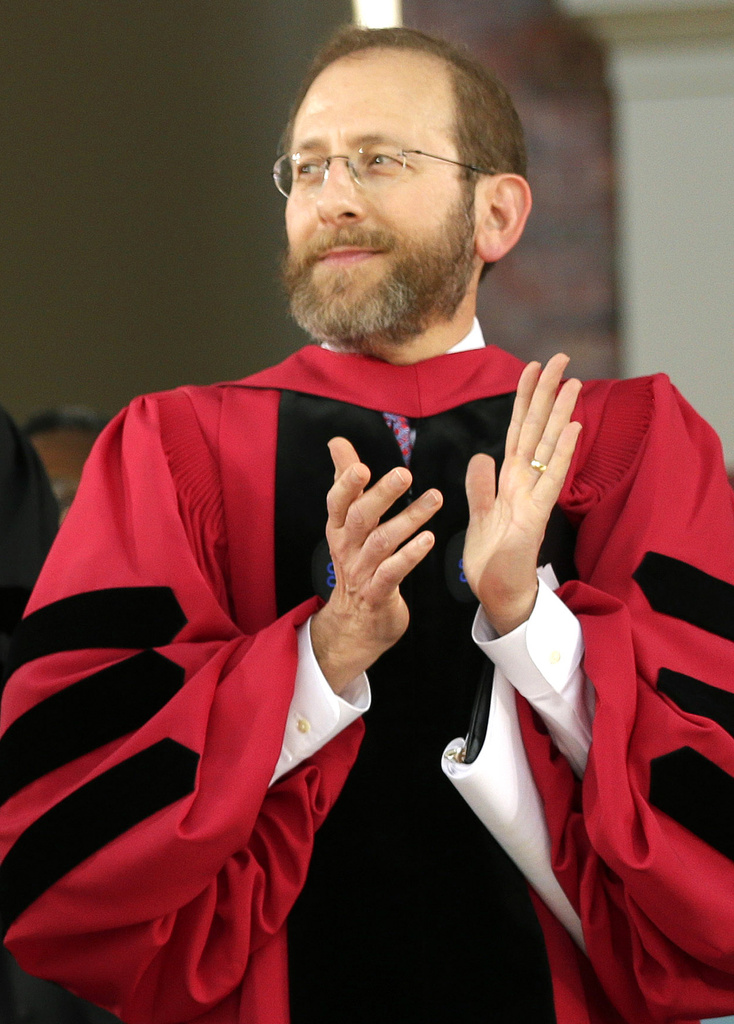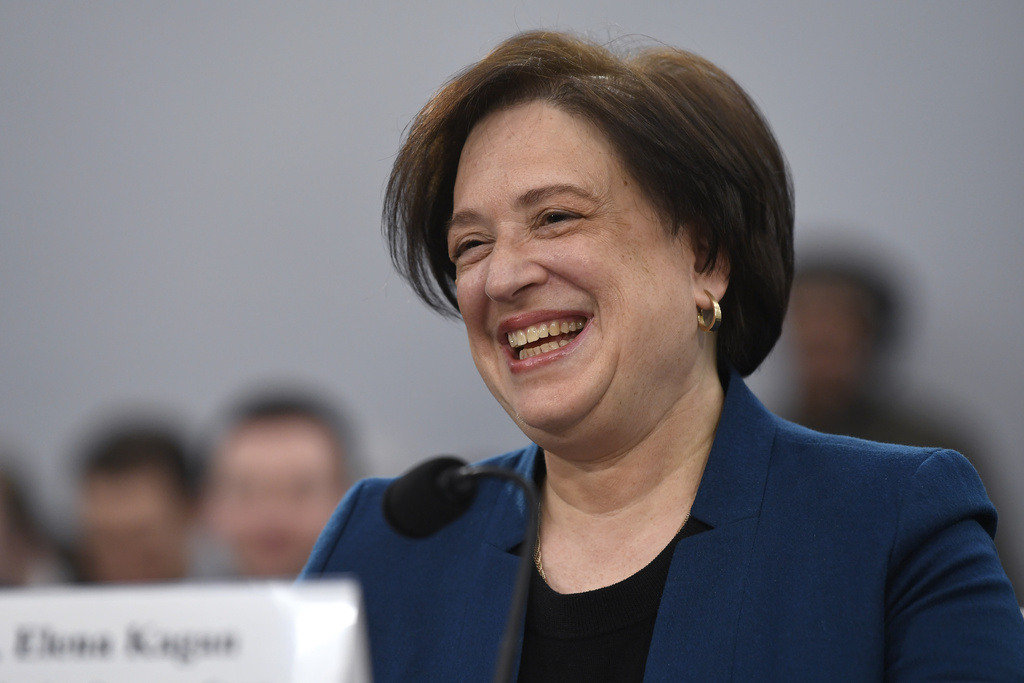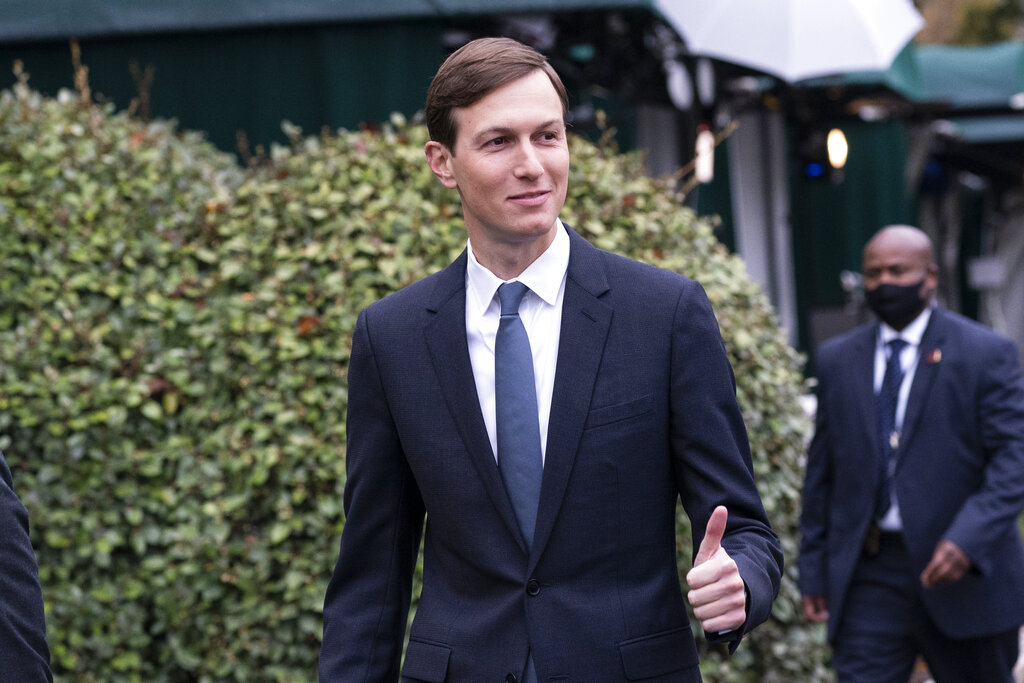Who Might Come After Claudine Gay at Harvard?
The Sun looks at potential candidates to lead Harvard during a tumultuous time at the nation’s oldest university.

“The ivory tower has become a laughably grotesque symbol of the contemporary institution of higher learning,” Harvard’s 24th president, Nathan Pusey, wrote shortly before his resignation in 1971 amid student tumult over the Vietnam War. “What do we do in such troubled circumstances as we are now experiencing?”
That is the question that many are asking following the resignation of Harvard’s 30th president, Claudine Gay. The search for the next leader, which is already a fixture of national attention, “will include broad engagement and consultation with the Harvard community,” the Harvard Corporation wrote in a statement last week. Here is a list compiled by the Sun of mentions of potential candidates, though no predictions are intended.
* * *
Alan Garber: University Provost and Interim President
The simplest choice for Harvard’s search committee would be to keep the provost and interim president, Alan Garber, in his role as acting president, provided no new controversies erupt in the coming months. “It’s crucial that we bridge the fissures that have weakened our sense of community,” he wrote in a statement on Monday, “especially in the face of persistent scrutiny.”
Raised by a Jewish family, Mr. Garber has expressed “regrets” about the university’s muddled response to the Israel-Hamas war. He is a towering academic, having published more than 150 academic papers, and was likely on the short list for the presidential post before it was given to a Harvard Corporation member, Lawrence Bacow, in 2018.

What remains in question is Mr. Garber’s ability to fundraise in an institutional capacity — a key task of a university president, especially as some Harvard donors have retracted their multimillion-dollar pledges over the school’s response to antisemitism. Others might take issue with the growth of diversity, equity, and inclusion curricula during his tenure as dean of social sciences for Harvard’s Faculty of Arts and Sciences between 2014 and 2021.
Danielle Allen: Harvard Political Science Professor
“Well-respected,” “incredible,” and far more qualified than Ms. Gay — that’s how some scholars are endorsing Danielle Allen for Harvard president. She might love to take on the job, having previously put her hat in the ring for the FAS deanship.
Ms. Allen’s academic prowess and institutional leadership are evident: She has published more than 50 scholarly articles and eight books, served as the director of Harvard’s center for ethics, and is a member of Harvard’s Council on Academic Freedom, which is dedicated to promoting free inquiry on campus. “The health of our democracy,” Ms. Allen wrote in the Washington Post last month after Ms. Gay testified before Congress, “requires renovation of our colleges and universities.”
Elena Kagan: Associate Justice of the Supreme Court
A former dean of Harvard Law School, Elena Kagan might not want to leave her post as an associate Supreme Court justice, but cinching the Harvard presidency would enable her to fulfill the dream she lost to historian Drew Gilpin Faust in 2007.
Several hundred law school students threw a party for Ms. Kagan when she didn’t get the job, and some observers are now calling for her return to campus.

While Ms. Kagan left Harvard in 2009 to serve as President Obama’s solicitor general, she hired a slew of conservative legal scholars during her tenure, so she might today find support from people across the political spectrum.
John Manning: Dean of Harvard Law School
Harvard could benefit from the leadership of Harvard Law School’s dean, John Manning, who has served on the school’s faculty since 2004. A graduate of Harvard College and law school, he is a well-known conservative who served as a law clerk to Justice Antonin Scalia on the Supreme Court of the United States and to Judge Robert H. Bork on the U.S. Court of Appeals.
When the 25th Harvard president, Derek Bok, assumed his post in 1971, so too did he leave behind a deanship and professorship at the law school amid the resignation of Pusey. Pusey, not unlike Ms. Gay, was sharply criticized for his response to student unrest during the Vietnam War. So well-regarded was Mr. Bok’s 20-year tenure that he returned as interim president in 2006 and was recently recognized by the Crimson as “The Last Harvard Giant.” Perhaps Mr. Manning could be the next.
John Roberts: Chief Justice of the United States
Chief Justice Roberts, who is a two-time Harvard graduate, could also serve as a stabilizing force at the university’s helm. Nominated to the high court by President George W. Bush, he espouses a moderate conservative judicial philosophy but has worked well alongside the liberal bloc of justices. With experience building consensus across political divides, Chief Justice Roberts has proved highly capable of protecting the reputations of prestigious institutions.
George Daley: Dean of Harvard Medical School
Speaking of recruiting from professional schools, the dean of the Medical School since 2017, George Daley, could also be tapped for the Harvard presidency. The longtime teacher is not only an esteemed stem-cell scientist but has also held leadership roles at several medical institutes and been lauded for his fundraising abilities at Harvard, where he earned his undergraduate and graduate degrees. “Cheaper, faster, and better” is how Dr. Daley has described the need to transform medical education and drug development. His ability to reinvent higher education might be what Harvard needs now.
Nitin Nohria: Former Dean of Harvard’s Business School
Just across the Charles River, chemical engineer Nitin Nohria served as a successful dean of Harvard’s business school for a decade, the culmination of 33 years on the school’s faculty. He stepped down in 2020 and now works in venture capital, so he knows what it takes to run a business, which is not entirely unlike a university. Yet Harvard’s faculty, a powerful constituency on campus, might shirk at the appointment of a corporate leader.
Arthur Brooks: Professor of Public Leadership
The popular professor of public leadership at the Harvard Kennedy School could provide a dose of just that as the university’s president. Having served for 10 years as president of a conservative public policy think tank, the American Enterprise Institute, and as a member of the Council on Academic Freedom, Arthur Brooks could be expected to welcome diverse viewpoints on campus. While some might view him as more of a celebrity professor than a serious academic, the Ph.D. social scientist has a strong television presence and has most recently reinvented himself as an expert on happiness, co-authoring a book on the topic with Oprah Winfrey.
The Recruits From Other Campuses
The president of Colgate University, Brian Casey, the president of Colby College, David Greene, and a former president of Brown University, Ruth Simmons, are Harvard alumni who have received acclaim for their leadership at their respective New England campuses. The president of the University of Florida, Senator Sasse, would also be a good choice, though he has been at Florida for less than a year.

Long-Shot Celebrities
Some are advocating for a return of Harvard’s 27th president, Lawrence “Larry” Summers, who has been outspoken against the antisemitism at the school when he was its president and again after October 7, though he fell silent after Ms. Gay’s testimony and supported her staying in office. He resigned from Harvard’s presidency in 2006 after a tumultuous five years, but Congresswoman Elise Stefanik remembers the former Treasury secretary as “an excellent university president.”
Calls are also being heard on social media for the 40th president of America, Barack Obama, to bring his White House experience to his law school alma mater. Jewish Insider reports that Mr. Obama privately lobbied on Ms. Gay’s behalf following her congressional testimony on antisemitism, but he has not publicly commented on the situation.
The Sun’s Ira Stoll, who was among the first reporters to break the antisemitism story at Harvard, sees President Trump’s former senior advisor, Jared Kushner, as a candidate who could make Harvard “a model of bipartisan pragmatism.” He and Mr. Obama know how to fundraise, but neither have much experience in higher education.

